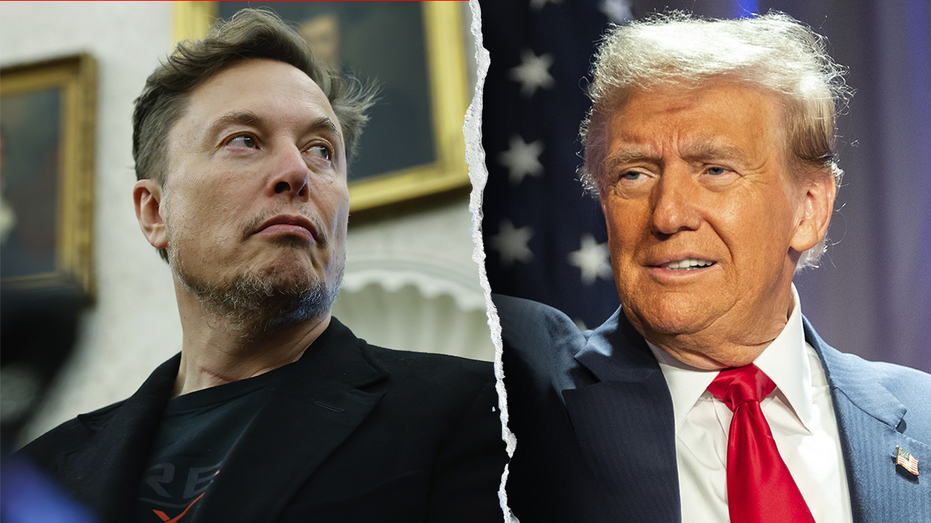In a recent statement that has captured significant attention, entrepreneur and tech magnate Elon Musk has expressed remorse regarding a series of social media posts that targeted former President Donald Trump. Musk stated, “They went too far” during an interview, hinting at the contentious atmosphere that often accompanies public figures’ comments, particularly on social media platforms.
The incident highlights the complex relationship between social media and political discourse in the United States. Musk, known for his polarizing presence on platforms like Twitter, has built a reputation for sharing bold opinions and engaging in discussions that often straddle the line between entrepreneurship and political commentary. His recent comments have added fuel to an ongoing debate about the responsibility of influential figures in shaping public opinion and their impact on political figures.
Musk’s past posts regarding Trump have been described by some as provocative and inflammatory. While Musk often uses his social media presence to express unfiltered thoughts on various subjects ranging from technology to environmental issues, his comments about Trump have drawn particular scrutiny. Observers of the political landscape have noted that the tone and content of Musk’s tweets can significantly influence public sentiment and perceptions of political figures.
In reflecting on his previous remarks, Musk has indicated that he believes certain statements may have crossed a line. This acknowledgment comes at a time when the political climate in the U.S. remains highly charged, with social media playing a pivotal role in shaping narratives and mobilizing audiences.
The influence of social media on political discussions cannot be overstated. Musk’s comments provide an opportunity to analyze the broader implications of prominent figures using social media as a platform for political commentary. With millions of followers, the weight of his posts carries significant implications, affecting everything from public perception to market dynamics.
Critics of Musk argue that his willingness to engage in political banter is not without consequences. There are concerns that inflammatory remarks can exacerbate divisions among political factions, polarizing the discourse even further. However, supporters of Musk contend that his candid style can encourage open dialogue and challenge conventional thinking.
As social media continues to evolve, the norms and expectations surrounding conduct on these platforms remain fluid. Musk’s reflections may suggest a growing awareness of the delicate balance between self-expression and accountability. In contrast to the uninhibited nature often displayed in his tweets, this admission of regret serves as a reminder that the responsibility wielded by social media personalities cannot be taken lightly.
The ramifications of public statements made by influential figures extend beyond the immediate reactions they provoke. In this instance, the fallout from Musk’s previous posts serves as a case study of the possible repercussions of public comments on a divisive political figure such as Trump. As some argue, the relationship between online discourse and real-world effects is more critical than ever in a society that increasingly depends on technology for communication and information dissemination.
Furthermore, Musk’s remarks prompt a consideration of how individuals forge their identities in the digital age. With increased scrutiny from both the media and the public, many may find it imperative to navigate social media with caution. The signals sent by Musk, whether intended or not, may resonate with a younger generation seeking authenticity amidst a landscape often characterized by vitriol.
In addition to this dynamic, the implications for free speech and personal expression on social media platforms are especially pertinent. Musk’s admission could be interpreted as an appeal for introspection among those who engage with political content online. As influencers and everyday users alike grapple with their speech, the line between free expression and responsible communication becomes increasingly blurred.
For Musk, an entrepreneur who thrives on innovation and disruption, the reflection on his posts targeting Trump signals a nuanced approach toward the power he holds in the digital arena. It underscores the intricate connection between individual expressions of opinion and the larger societal tapestry woven through political engagement and digital interaction.
Looking ahead, the future of social media and political discussion may hinge on how these conversations evolve in light of individual reflections like Musk’s. As influential figures reckon with the impact of their words, there lies an opportunity for more constructive dialogue and engagement. The challenge will be to foster an environment that promotes respectful discussion while still allowing for diverse points of view.
Ultimately, Musk’s regret over his social media posts that targeted Trump presents a moment of critical reflection for public figures and everyday users alike. It raises questions about the roles that responsibility, accountability, and the ethical considerations surrounding influencers’ views play in a society that is increasingly connected through technology.
In summary, as Musk has acknowledged, the discourse on social media, especially in relation to polarizing political figures, requires a careful balance between freedom of expression and the potential ramifications of one’s words. As the landscape of political communication continually evolves, it will be intriguing to observe how prominent figures like Musk navigate this delicate balance in the future.
By fostering deeper understanding and empathy in discussions—whether online or offline—society may inch closer to bridging divides and addressing the pressing issues that confront the nation today. Ensuring that dialogue remains constructive amidst differences will be key to nurturing an informed and engaged citizenry as the political landscape continues to unfold.
































